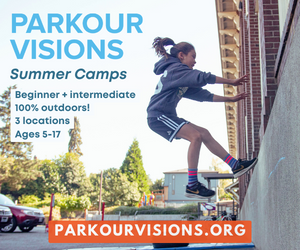For many of us, Father’s Day is a fun holiday to honor and celebrate life and the people we love. But for some, it’s a painful reminder of loss or a difficult family dynamic.
There are so many different types of fathers, and so many different types of relationships, sometimes it can be hard to navigate or to find an aligned way to honor the day.
Here are some of the most difficult dynamics and ideas to work within each situation:

Fathers Who Have Passed
For those with fathers who have passed away, the most important aspect is to honor whatever grief or feelings come up for you, and then take time to honor their memory if that feels aligned.
If it is your father who has passed, take some time alone to process your emotions. If you had a strong bond, perhaps you are still grieving and missing him and you wish he were here. If your relationship was not positive, perhaps you feel guilty, abandoned, or anxious during this time. Whatever you are feeling is OK, just give yourself ample time and space to feel it and release it (tears, deep breathing, writing a letter to him, or journaling).
If it feels aligned, you can then honor him in some way. Perhaps you tell your children stories about Grandpa or sit and laugh about your favorite memories with those that knew him. Maybe you do his favorite activity or you create a new tradition with your children from something you shared with him.
If it was your children’s father who passed, this can be even more difficult. You can help them through the process above and talk through your feelings as an example to help them talk through theirs, but don’t force them to talk about it. You can share your favorite memories and ask what theirs are, but once again, don’t force them. If they are young, you can help them create an art project in his memory, or do a favorite activity they shared if that feels good to them. The most important factor is to let them know it’s OK to be sad or angry that Dad isn’t here anymore and whatever they are feeling is normal, and they can also find joy in remembering their time together.
Grief can be very difficult to process, especially around holidays. David Kessler, one of the world’s foremost experts on healing and loss has many great free resources on his website. I’ve also written about how to use grief to heal here.
Estranged Fathers
If your father or your children’s father has left or is no longer a presence in your life, you or they may feel abandoned, angry, or sad. Like the above, it’s important to take time to feel all of your feelings, and help your children do the same. This can be done through talking about it, crying, writing a letter to him (that may or may not be sent), or journaling depending on the age of the child.
If your child is asking about their father, share what feels aligned and be as honest as you can, depending on your child’s emotional maturity, and be 100% clear that he didn’t leave because of them (i.e., “Daddy left because he was in a lot of pain and didn’t get the help to heal, it didn’t have anything to do with you.”).
If you are feeling abandoned, sit with the wounded child within you and allow them to feel their feelings, expressing the same certainty that it had nothing to do with them. This can be done via journaling or writing a letter to your younger self, or as a visualization or meditation. Giving space for your inner child to feel their pain is incredibly healing and allows for many of us that were not taught to feel our feelings to go back and feel and heal deep childhood wounds.
Separated Fathers
If you and your child’s father are in a co-parenting situation or he is still in their life in some way, you can help them celebrate their father. Perhaps they can make him a gift or a card, or you can arrange for a special phone call or visit. Talk to them ahead of time and help them come up with ideas of how they might like to celebrate or express gratitude for him.
If you are not on good terms with him, remember that regardless of how you feel about him or what happened in the past, he is still their father and you don’t want any of your emotions to be passed onto your children. Be the bigger person by working through whatever emotions come up for you, and then helping your child.
If they don’t want to celebrate or honor him because of a difficult past or rocky relationship, that is OK, but talk through everything with them and give them the chance if it feels aligned for them. Children often think they don’t have permission or don’t want to make you feel bad by celebrating someone they know you don’t get along with or someone who has treated you poorly. Make sure they know that it’s OK for them to love him, and your relationship with him is separate from theirs.
Stepfathers
This can be such a difficult situation, so be very mindful of everyone’s feelings and don’t force your kids to participate. If you have re-married, regardless of how wonderful he is, your kids may feel like it will betray their Dad to love him or they just may have lots of big emotions surrounding the situation. You can help talk through this with them, letting them know he will never take the place of their Dad, and it’s OK to love them both, or have anger or sadness about it.
You can lead by example and let them know you are celebrating by making him a special breakfast, a gift or a card and ask if they want to help you. If they don’t, let them know that’s OK. Don’t make them feel guilty or explain why they should honor him (“He does so much for you.”, etc.). Just lead by example and cheerily celebrate him yourself, working through any feelings you have about them not participating on your own.
Regardless of the situation, celebrate where it feels aligned and help your kids do the same. Reach out to anyone you feel deserves to be honored as a father and spread as much love and gratitude as you can on this beautiful day. And if you are a single mom with no help from anyone as a father, give yourself some extra love on this day – you deserve it!!!

















